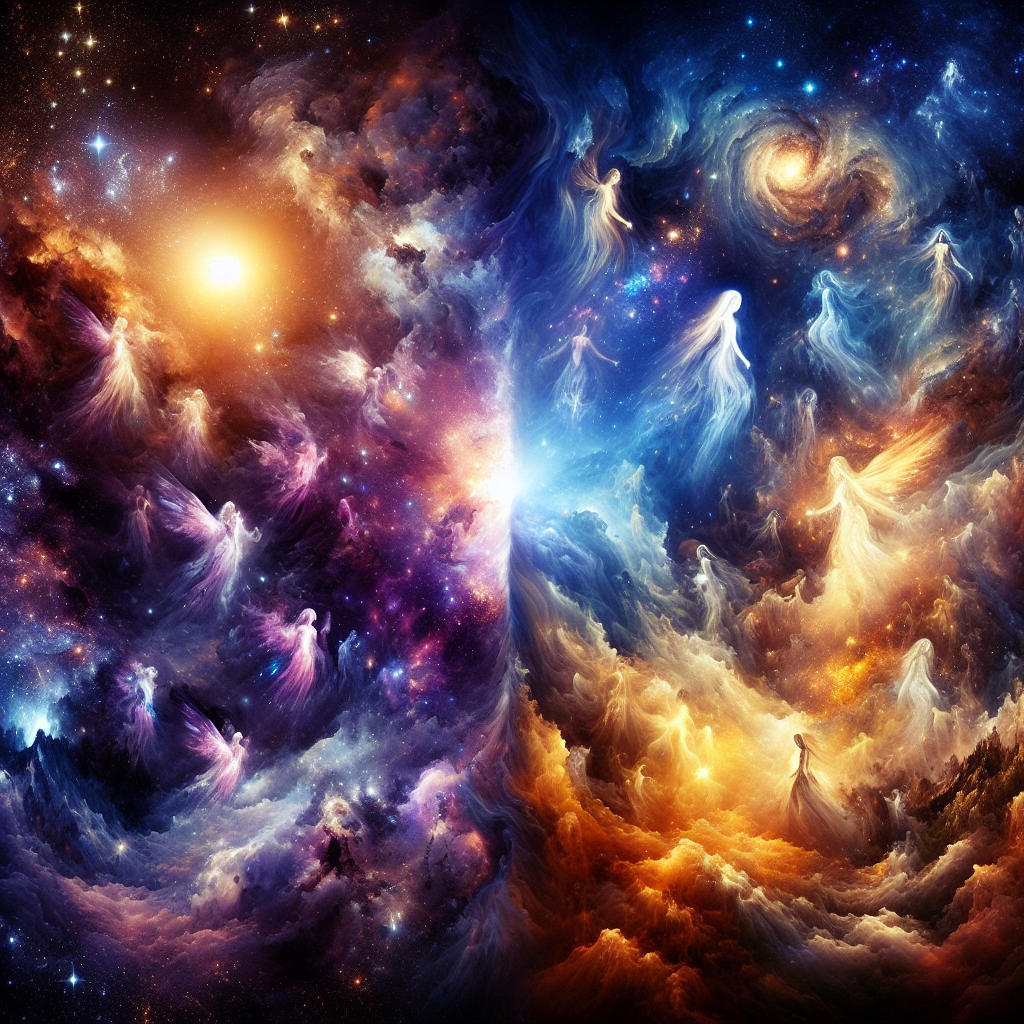The relationship between science and religion has often been portrayed as a battleground, pitting empirical inquiry against theistic belief systems. However, a closer examination of the biblical book of Genesis alongside contemporary scientific discoveries reveals a profound and harmonious connection that invites us to explore the wonders of creation from both perspectives. This article seeks to illuminate that intersection, offering an educational and encouraging glimpse into how Genesis and modern cosmology can coexist and enrich our understanding of existence.
The Genesis Narrative: A Cosmic Perspective
The book of Genesis, the first book of the Bible, presents a creation narrative that has captivated religious thinkers for millennia. It begins with the famous line, “In the beginning, God created the heavens and the earth” (Genesis 1:1). This simple yet profound statement encapsulates the biblical worldview: a purposeful creation initiated by a divine Creator.
Genesis unfolds a richly layered story that describes the creation of the cosmos in a series of progressive acts over six days, culminating in the creation of humanity, made in the image of God. Notably, the text emphasizes that creation is fundamentally "good," highlighting an underlying order and purpose in the universe. This theocentric view invites believers to recognize the intricate beauty of the natural world as a profound reflection of divine artistry.
Scientific Discovery: Unraveling the Cosmos
On the other side of the dialogue, contemporary science has embarked on a remarkable journey to explore the origins and workings of the universe. The Big Bang theory, for instance, posits that the universe began approximately 13.8 billion years ago from an infinitely dense point, subsequently expanding to form galaxies, stars, planets, and ultimately life.
Cosmology, the branch of astronomy that studies the origins and development of the universe, offers fascinating insights into the structure and behavior of cosmic entities, from the smallest subatomic particles to vast galactic clusters. The laws of physics, discovered through rigorous experimentation and observation, reveal an intricate tapestry of natural laws that govern everything from the formation of stars to the intricate biology of living organisms.
Harmonizing Faith and Reason
Rather than viewing the creation story in Genesis and scientific explanations of the universe as conflicting narratives, many scholars and theologians advocate for an integrated perspective. This synthesis emphasizes that faith and reason can coexist, providing complementary insights into the nature of reality.
For instance, the notion of “creation ex nihilo” (creation out of nothing) found in Genesis resonates with current scientific understandings of the universe’s origins. The Big Bang theory sparks fascinating questions about the existence and nature of a pre-Big Bang state, echoing the theological inquiry into the nature of creation itself.
Moreover, modern evolutionary biology explores the gradual development of life on Earth due to natural processes, which can be understood as part of the divine creative act. This perspective invites believers to marvel at the complexity and diversity of life, seeing it as a reflection of a Creator who delights in variety and innovation.
The Call to Wonder and Stewardship
Both the Genesis account and scientific discovery ultimately encourage a sense of wonder and reverence for the cosmos. They remind us that the universe is not merely a collection of random occurrences but, rather, a magnificent tapestry woven with purpose and intentionality.
This intersection also highlights the responsibility humanity bears in stewarding the Earth. Genesis 1:28 articulates a call to stewardship: "Be fruitful and multiply, and fill the earth and subdue it." By combining the ecological insights of modern science with the biblical message of stewardship, individuals and communities can work toward a more sustainable future.
Conclusion: A Journey of Discovery
The exploration of the connections between Genesis and the cosmos is a journey that transcends dichotomies and embraces the richness of both faith and reason. By viewing the insights of modern science as a pathway leading to a deeper appreciation of the divine, we can cultivate a relationship with the cosmos that encourages curiosity, inspires awe, and fosters responsibility.
In a world where divisions often overshadow understanding, the integrative approach to Genesis and scientific discovery opens the door to dialogue and exploration. Both narratives collectively beckon us to be vigilant explorers of the cosmos, united in our quest for knowledge and our pursuit of meaning in the grand tapestry of existence. Together, let us embark on this journey, celebrating the interplay of biblical revelation and scientific discovery as we seek to unlock the mysteries of creation.
Explore and dig up answers yourself with our BGodInspired Bible Tools! Be careful – each interaction is like a new treasure hunt… you can get lost for hours 🙂


